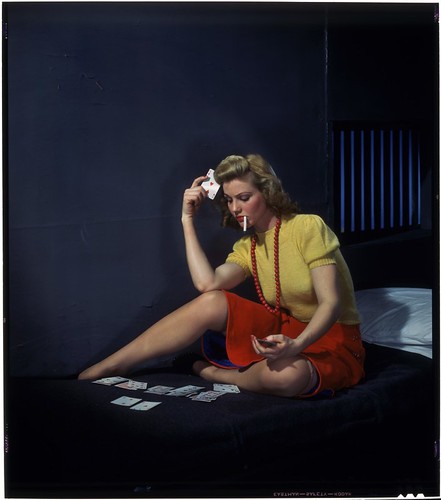 Photo by Callee MacAulayAs I mentioned yesterday, I just returned home from the Romantic Times convention. I went to a lot of workshops and got some great information. And one of the workshops I went to was about social media and promoting your brand. The speaker was a publicity expert and she had a ton of terrific things to say.
Photo by Callee MacAulayAs I mentioned yesterday, I just returned home from the Romantic Times convention. I went to a lot of workshops and got some great information. And one of the workshops I went to was about social media and promoting your brand. The speaker was a publicity expert and she had a ton of terrific things to say.
But one of the things that gave me pause was when she started talking about the infamous Twitter Followers vs. Follower count. She said your "popularity" holds less water if your counts are similar. Meaning, you have 5k followers but you follow 5k people. It's assumed that you're just doing the automatic "follow back" thing. So, she recommended putting people on lists--where they don't show up on your follow count and they don't know you're following them but you can still see their tweets.
Well...I'm not sure I agree with this approach. It kind of sounds like the popular girl only being friends with the nerd in private but not in front of her friends. I am patently against the auto follow back (see my post on Enough with the Quid Pro Quo if you want more on that.) However, I think only following your select group of friends or clique is actually missing a great opportunity. I wrote on this a while back on my writing blog, but I thought I'd run it again since this whole "only follow an elite few" advice is still being given.
Of course, this is just my opinion, but here's what I think...
The Danger of Authors Being Too Clique-y on Twitter
In the Twitterverse, there is this impression that you must be really important/supercool/whatever if you have a high number of people following you, but you personally only follow a handful of people. Basically--everyone wants to be your friend, but you only grant that "privilege" to an elite few. (High school never ends it seems.)
Now most people who do this do it not because they're being a "twitter snob" but because they don't want to be overwhelmed by three thousand peoples' tweets. I TOTALLY get that because I follow over 2k people and that got way too hard to manage, so I had to start using lists (in a different way than mentioned above, more on that later). And if you're, for instance, an editor or an agent--where everyone is seeking your attention--it makes sense to limit who you follow only to people you truly have a connection with in some way.
However, I think for an author this practice can really shoot you in the foot instead of helping you. We are writers. We want to connect with readers. We want to sell books and build a fanbase. Right?
So why-oh-why if you're an author would you only follow your "clique" of friends and not follow your readers, the people who are paying their hard-earned money to buy YOUR book?
I know it's silly, but you know how much better I feel about an author if I @ her/him on Twitter and the person responds? All of a sudden, this author's coolness factor has jumped off the charts. It makes me like them more. It makes me want to support them and their books because they are REAL and FRIENDLY and APPROACHABLE. And if they follow me, then wow, I'm really won over.
On the other hand, if I follow an author and they don't follow me (fine), but then they ask questions of their readers/audience and I respond--and get no response or even a general "Thanks to everyone who commented", then I feel a little huffy. Now if you're Stephanie Meyer or Stephen King or whatever, then it's understandable. Uber-fame gets you a pass. I'm not talking about them. I'm talking about your average author who has a few thousand followers.
When they don't respond or acknowledge, plus don't follow--the impression that is left is--this author thinks they are too important/busy/big-time and don't feel like their readers are important enough to acknowledge even after they've asked directly for their help. So when that same author hops back on Twitter and is announcing their book release or contests and asking for retweets--well, I'm just not that motivated to go out of my way for them.
So the question is, as an author, how do you
a) Make your readers/followers feel important? and
b) Do so without being bombarded daily with 80 bazillion tweets from people you don't know?
Answer: Lists
Twitter allows you to make both public and private lists. Then you can use a program like Tweetdeck and have your main column be just the tweets of people on that list. For instance, I follow over 2k, but there are only about 200 on my "super awesome people" list. It's private, so no one can see if they are on my list or not. But this makes it manageable to follow, while I'm still able to follow "in general" the other non-list people in another column and can click if something pops up that catches my interest. And if I end up interacting with someone who is not on the list and making a connection, it's easy enough to add them to my super awesome list.
Doing this allows me to have my cake and eat it too. I can have my clique of people who I talk with regularly while not alienating new people who may become great friends or readers or whatever one day.
Now, having said all this, I do not follow everyone back. If nothing catches my eye in their profile, they seem spammy or only focused on promo, or we seem to have nothing in common (or I just don't have time to go through my new follows, which is the most common reason lately), I'll wait. If they talk to me at some point, then I'll probably go follow.
And please oh please don't go follow a whole bunch of people just to drive your follower count up. It's spammy and useless. That's what gives that follow vs. follower count a bad reputation. But if you find someone who interests you, it's just a click.
So what do you think of this method? How do you feel when an author you like interacts with you or follows you? How do you feel if they don't do those things? And do you think someone is less awesome if their follow vs. follower ratio is closer to even instead of lopsided?



